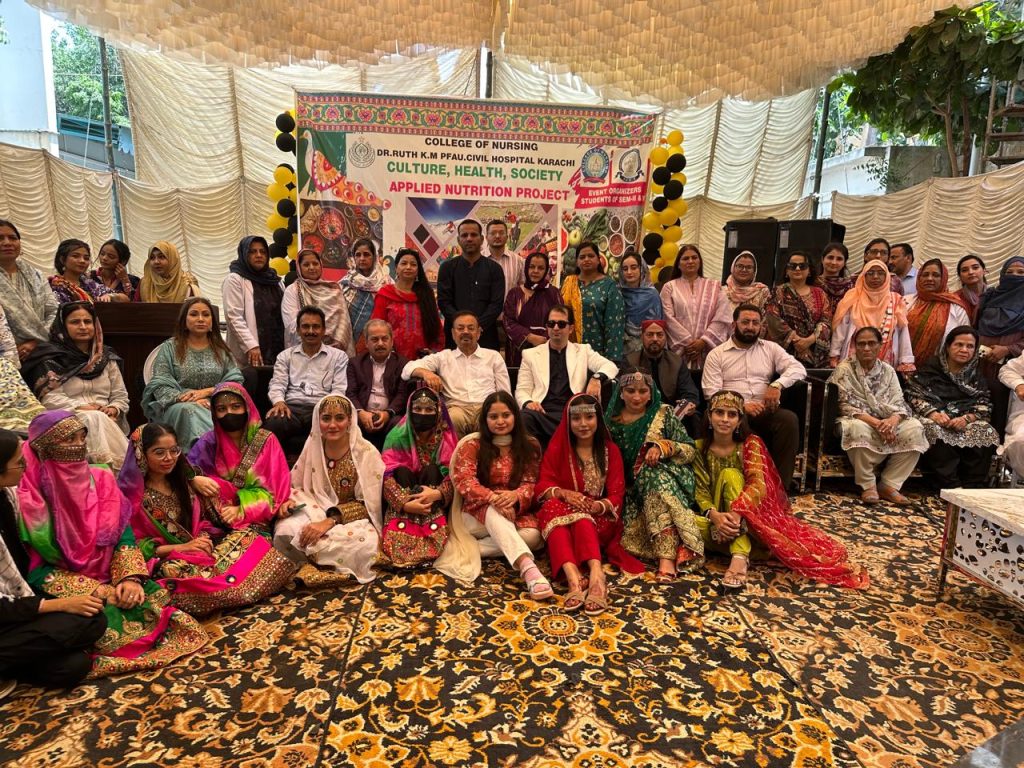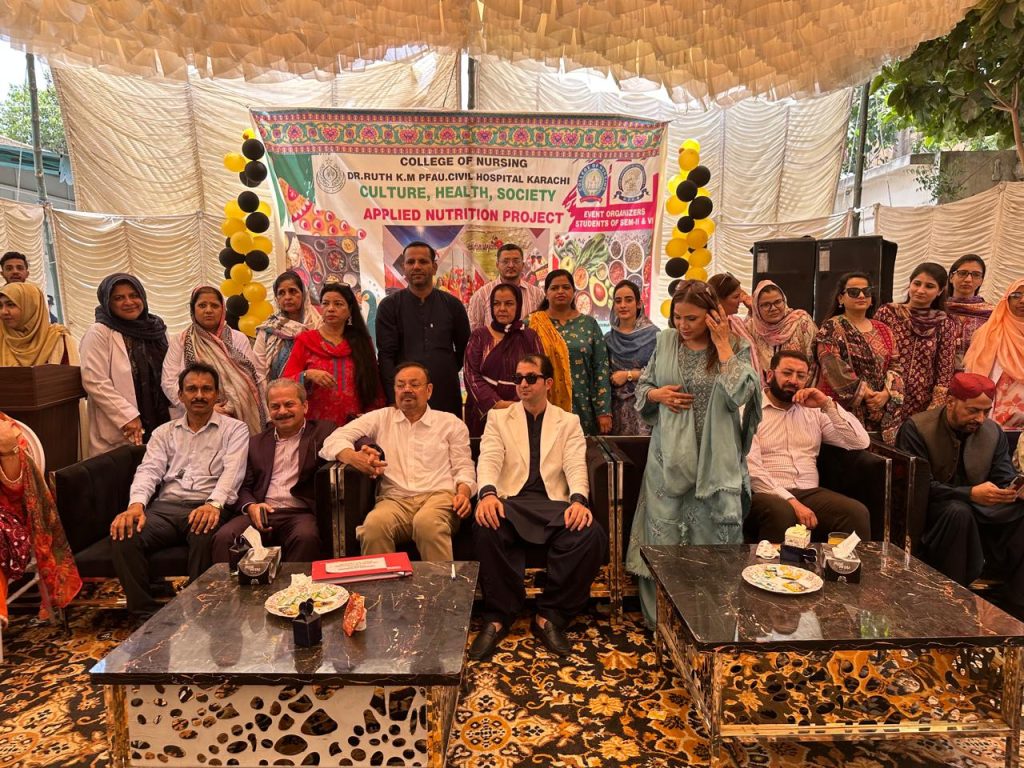
Press Release
KARACHI: In an engaging display of academic effort and social awareness, students from the VII and II semesters of the BS Nursing program at the College of Nursing (Female), Dr Ruth K.M. Pfau Civil Hospital Karachi, presented their project on Tuesday, delving into the interconnected themes of culture, health societies, and applied nutrition.
The event drew participation not just from faculty and fellow students, and attended by member Sindh Assembly Bilal Jadoon, Medical Superintendent of Civil Hospital Karachi Dr Khalid Bukhari, former PD EPI Dr Akram Sultan, and others. Their presence underscored the importance of integrating community voices into the realm of public health education.
The presentation showcased the students’ understanding of how cultural practices, community health norms, and nutrition are inextricably linked, particularly in urban and underserved settings like Lyari. Through detailed case studies, visual aids, and community-based assessments, the students explored how health outcomes are shaped not only by medical interventions but also by traditions, dietary practices, and societal attitudes towards wellness.
Speaking at the event, MPA Bilal Jadoon lauded the students’ work and said that initiatives like these highlight the importance of grassroots health education and cultural competence in future healthcare professionals. He emphasized the need for a continued dialogue between policymakers, health institutions, and academic bodies to address the gaps in community health outcomes.

Dr Khalid Bukhari, in his remarks, praised the academic depth and practical relevance of the project. He pointed out that for a public hospital like Civil, which caters to thousands daily, it is crucial that new generations of nurses are trained to understand not just diseases but the social environments in which these diseases persist. He added that the project reflects the evolving role of nursing in Pakistan’s healthcare system – one that demands not only clinical expertise but also cultural sensitivity and public engagement.
The project also served as a testament to the increasing leadership of female students in medical and public health domains. With a keen focus on applied learning and community interaction, the students’ work echoed the broader mission of the hospital – to serve not just the physical ailments of Karachi’s population but also to engage with the root causes of health disparities.
Faculty members expressed pride in their students, calling the project a timely and relevant contribution to health science education. As Pakistan grapples with complex health challenges ranging from malnutrition to non-communicable diseases, such academic efforts provide a foundation for solutions that are locally grounded and culturally aware.



